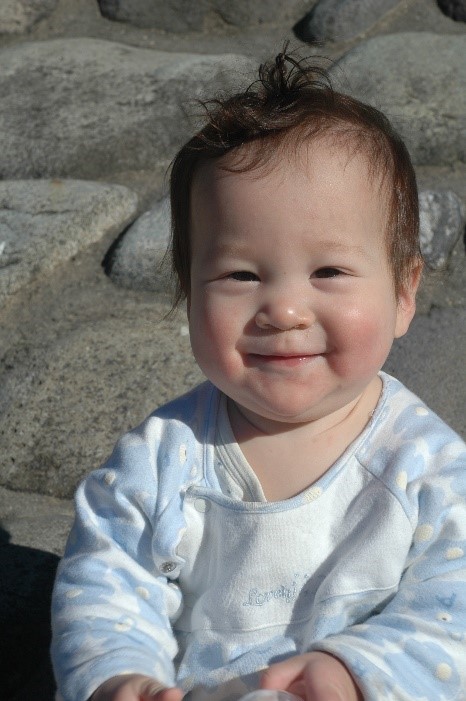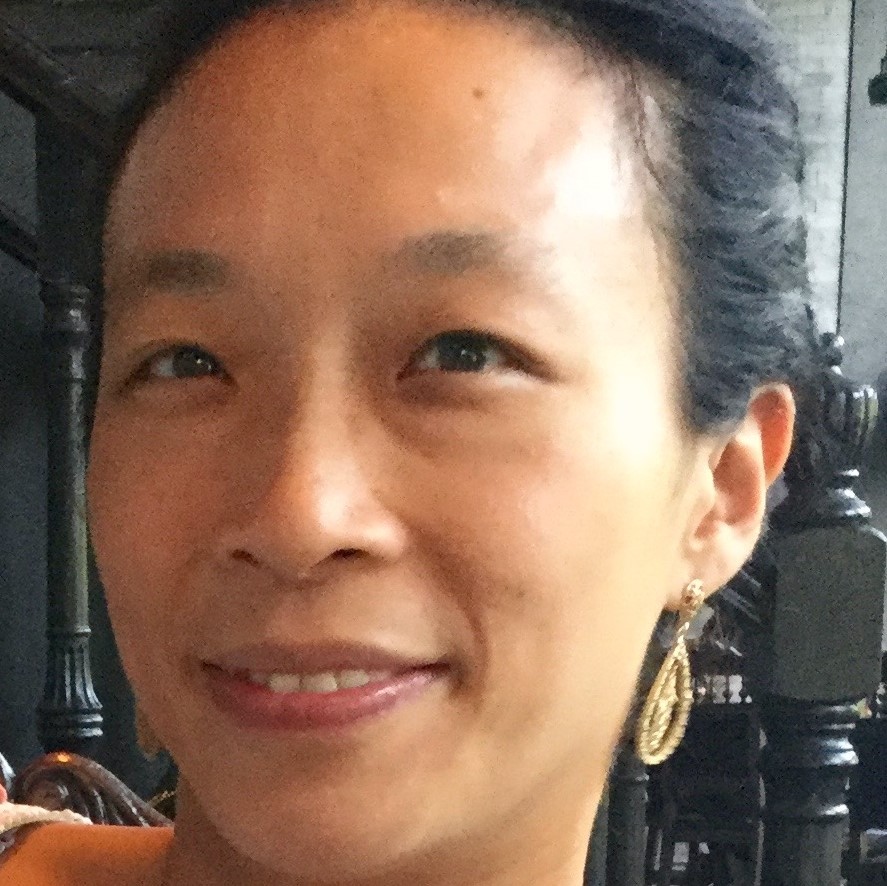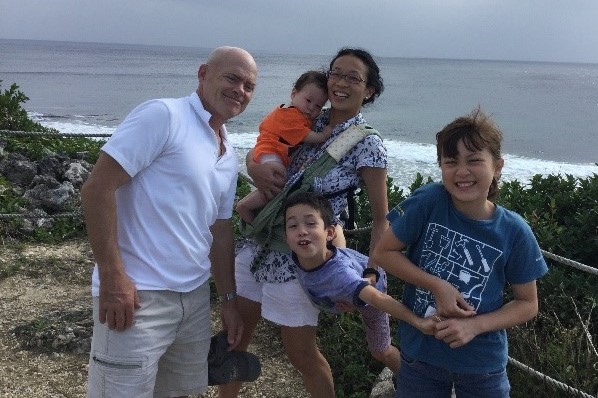Voices from the Sylff Community
Feb 19, 2021
Survival Is Insufficient: Reflections on Social Safety Nets and the Need for Ritual, Connection, and Meaning
Sherilyn Tan Siy, a 2007 Sylff fellow, currently lives in Japan with her husband and young children. Using the apocalyptic novel Station Eleven as a point of reference, she ponders how the COVID-19 pandemic has impacted the lives of the family members, as well as those of others, and what revelations it has brought.
* * *
In late January 2020, I was reading Emily St. John Mandel’s 2014 novel Station Eleven, an award-winning novel that takes place in the Great Lakes region before a fictional swine flu pandemic wipes out 99% of the population. Unlike many apocalypse novels, Mandel treats a grim subject with subtlety. Through her calm writing, she creates word tableaus that have the effect of making the unexpected stunningly beautiful, the sinister a little bit eerier, the dramatic even more gripping. It is the mark of good fiction when you begin to feel as the characters would in their situation and, despite the grimness of the subject, refuse to stop reading. Long after I have put the book down, the dread of living in a world where the few remaining people struggle to carry on weighed me down. Is there any meaning to surviving? Would we even want to be alive then?
The novel bothered me so much I passed it on to my partner so we could discuss. We went out for dinner soon after he finished reading. The timing could not have been more inauspicious. Then Prime Minister Abe was slated to make an important announcement the following day, and the public, suspecting a possible lockdown, emptied the shelves à la Station Eleven of toilet paper and shelf-stable food. We asked each other, “Will this be the last time we will be able to eat out?”
My heightened unease could have been influenced by hormonal changes in my body in the third trimester of pregnancy. Our third was due to arrive in April. How safe is traveling to Tokyo by train for my check-ups? Will the hospital be overloaded with Covid-19 cases? Can my partner stay and support me in the delivery room? What sort of world will our baby be born into?
But I had more pressing and immediate concerns.
Schools abruptly closed down a few weeks short of the end of the academic year. My two children—aged nine and seven—grieved, left in limbo. As the weeks turned into months and there was no indication that school might restart anytime soon, my seven-year-old son asked whether he has already moved up a grade. First graders were required to keep a neon yellow cover on their schoolbags to enhance visibility when crossing the street. He could not wait to remove this thing that marked him as a neophyte. I realized then how important structure and rituals are, especially for children, and how the pandemic robbed us of the small and big ceremonies that mark time and growth. And so, after dinner one night, we played graduation music from the Internet and clapped after he solemnly unfastened the neon yellow cover and threw it away.
In conjunction with the sudden shutdown of schools, my after-school English classes—a significant source of my income—were also suspended until further notice. Projects for my travel writing work got canceled, and one of the international companies I worked with dissolved permanently. Some friends and family suddenly found themselves furloughed, laid off, or simply out of work. In the food bank that my partner runs, we saw a sudden increase in people lining up at the pantry. The pandemic is not a mere inconvenience but has real consequences to individuals, especially women who are likely to take on the no-work-no-pay type of jobs that allow for flexibility in childcare but also tend to be low wage and come with no security.
In my panic, I worked harder and longer at my job at the organic center, took on more shifts, and worked until the very day before I gave birth. I hurried back to work a month later, baby strapped on to me, partly because I was terrified of losing my job in a world that has become so uncertain. It turns out I need not have worried too much. Because people are cooking at home more and becoming more health conscious, orders for our organic food products skyrocketed, and our company had to move to a bigger warehouse and hire additional staff.
My partner and I are both foreigners living in Japan. We do not have family roots or cultural connections to Japan, so we often talk about the ideal country to live in and whether we might thrive better somewhere else. Now, our conversation is shaped by our most recent experiences. We consider ourselves fortunate to be in Japan where the pandemic has been handled fairly well compared to our home countries (the United States for my partner, the Philippines for me). Throughout the last trimester of my pregnancy until the birth of our son, the two hospitals we went to were never crowded. The pandemic also underscored what social safety nets Japan had in place.
・During the period of emergency measures, families suddenly felt the financial burden of feeding children at home all day. We realized how much we relied on school lunches at our public schools to provide that one affordable, nutritious meal for our kids every day. School restarted in June.
・Daycares—affordable and professionally run here in Japan—remained open, easing concerns of parents who cannot work from home.
・Books helped us keep our sanity. When our local library closed for two months, we realized how much we miss this public asset. We were lucky enough to have access to the online cloud library from my partner’s home state in the United States, but it is not a replacement for a physical space to retreat into. The library opened again at about the same time the school resumed.
・At this time, when the slightest cough is worrisome, having national health insurance gives us some peace of mind that we will be taken care of without going bankrupt.
・The national government provided a one-time ¥100,000 cash handout per person and initiated other cash grants for single parents, students, and small businesses. Local governments distributed support in the form of coupons that can be used in stores.
In Station Eleven, the year the deadly flu struck is, years later, referred to as Year Zero. With only 1% of the population left, the world is an unrecognizable mess. Covid-19 is nothing like Station Eleven, but it has made us rethink the ways we did things: What is absolutely essential? What is unnecessary? What can we do without? My introverted partner and I have been happily avoiding face-to-face meetings and gatherings and saving time and money conducting business online. There’s no need for new clothes, and makeup is frivolous when more than half your face is covered in a mask if and when you do go out.
On the downside, there’s “Zoom fatigue” and the almost-impossibility of forming warm human connections online. What we suddenly realize is most important, more than ever, are good relationships with the people we live with and see every day, our partner and children. All the time and work we have put into our family, on learning how to repair conflict and enjoy spending quality time together, even before Covid-19, has made us closer and given us a buffer in this prolonged stressful period.
Maybe this pandemic raises not only the question of whether life can or cannot return back to normal but whether we would want it to. My daughter is a member of the mini basketball team. Before Covid-19, the team used to have all-day games during the weekends. With the pandemic, everything was canceled, and we realized that we rather like having our daughter spend time with us during the weekends. Now that all-day games are slowly resuming, we find it harder to say yes to them. Covid-19 has helped us sift through what really matters and only commit to things that we truly want to do.
In Station Eleven, some survivors of the fictional pandemic banded together into a nomadic performing group called the Traveling Symphony, bringing Shakespeare to settlements across Canada and North America. On their caravan is painted the motto “Because survival is insufficient,” a line the author took from Star Trek: Voyager and, really, the thesis of the novel. Now, more than ever in the midst of alienation and collective anxiety, it is not enough to be merely alive. We search for meaning. In our family, we find ourselves doing gratitude exercises more frequently, finding small things to celebrate.

My baby, born in the thick of the pandemic, is an unusually happy baby. He can recognize when someone is smiling at him even when half the person’s face is covered up with a mask. If the person isn’t smiling, he is keen to make them smile with his gurgling. At eight months, he tries to reach out to pull down people’s masks. This is not a new reality for him but the only reality he knows. One of the lead characters in Station Eleven, Kirsten, says that the post-apocalypse world is hardest to bear for those old enough to remember how the world was before. “The more you remember, the more you’ve lost,” she explains. In some ways, yes, that is true. But if Covid-19 has forced us to rethink our lives and cull through what’s essential, then all is not lost.


Comments
Sylff staff
Congratulations on your new baby during this difficult time, and thank you very much for sharing your story. His smile makes me so happy. -Yumi Arai-
Fellow
Greeting from Jakarta, first of all, congratulation for new baby, sherilyin (we met in Colcata). This pandemic has brought huge impact unto every aspect of lives that led to problems and found people hard to sustain and maintain their daily activities. Keep health and work smart and support government programs to eradicate this global pandemic. God Bless Us -Kardison Lumban Batu, 2006 Sylff fellow at Gadjah Mada University-